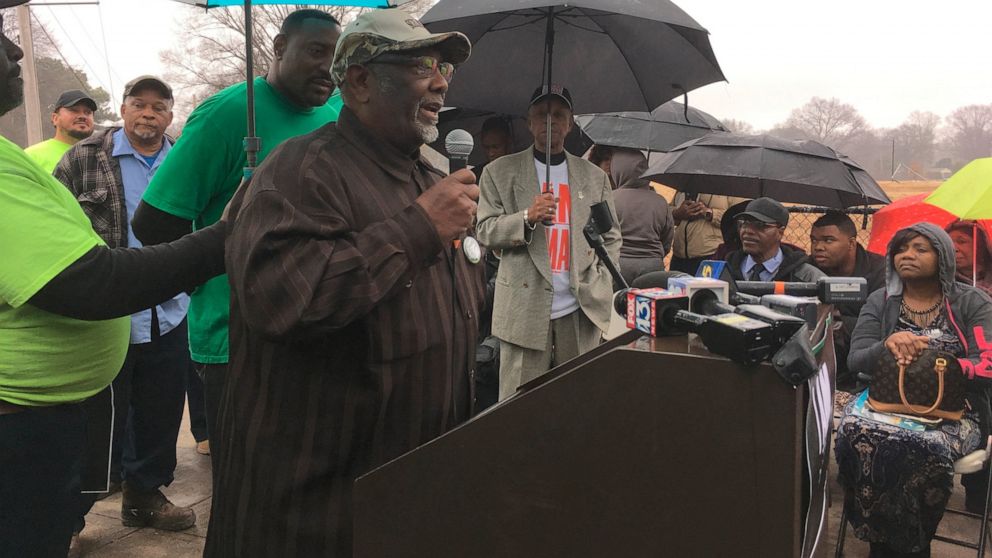
A prominent member of the Memphis, Tennessee, sanitation workers union whose historic strike drew the Rev. Martin Luther King Jr. to the city where he was assassinated has died, close friends said Tuesday. Baxter Leach was 79.
Leach died Tuesday morning, said Gail Tyree, executive director of the Memphis Local 1733 chapter of the American Federation of State, County and Municipal Employees. Tyree said she spoke with Leach’s daughter, who gave Tyree the news of her father’s passing.
Leach’s friend, Calvin Taylor, said he visited Leach at a hospital Monday. Leach had been battling cancer, Taylor said.
Leach “was a great man whose courageous actions made Memphis better,” Mayor Jim Strickland said in a statement on Twitter.
Leach helped organize the 1968 strike that saw 1,300 sanitation workers walk out of their jobs and march on Memphis streets with demands of higher wages and better working conditions. Workers mobilized after two colleagues were killed by a malfunctioning garbage truck.
Strikers used as their headquarters the historic Clayborn Temple, where they made their iconic placards that read, “I Am A Man.”
King came to Memphis to support the workers on two occasions. On his second visit, the civil rights leader was shot and killed on the balcony of the old Lorraine Motel on April 4, 1968.
The strike called national attention to the poor conditions of workers throughout the South. It is considered a key moment in the civil rights movement of the 1960s.
The union later secured improved conditions and higher pay, but they continued to fight for retirement benefits for decades.
Leach retired in the mid-2000s. He regularly spoke at events remembering the strike, including those surrounding the 50th anniversary of King’s assassination in Memphis.
Tyree, the local AFSCME director, called Leach “an amazing labor leader.”
“This union hall is his house,” said Tyree of the AFSCME office in Memphis. “He was someone you could always count on.”
Leach and other surviving sanitation workers received the National Civil Rights Museum’s Freedom Award last year. The museum is located on the ground of the former Lorraine Motel in Memphis.
In a statement, the museum said Leach “made himself available whenever he could to share the civil rights story in Memphis and the fight for human dignity.”
“He contributed so much to the knowledge of the struggle, making it real and tangible for the next generation,” the museum’s statement said.





